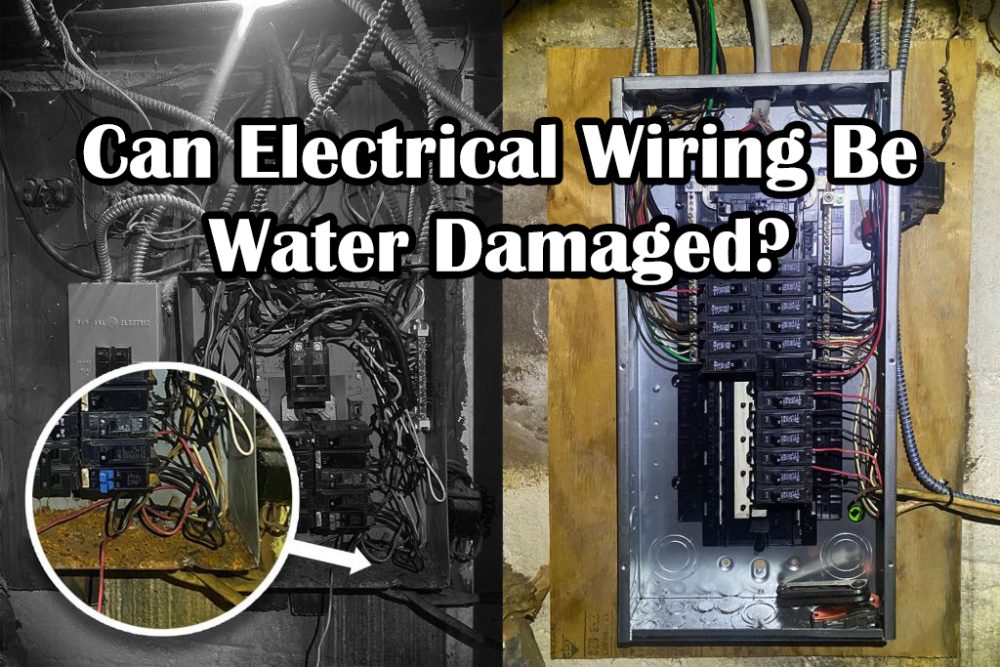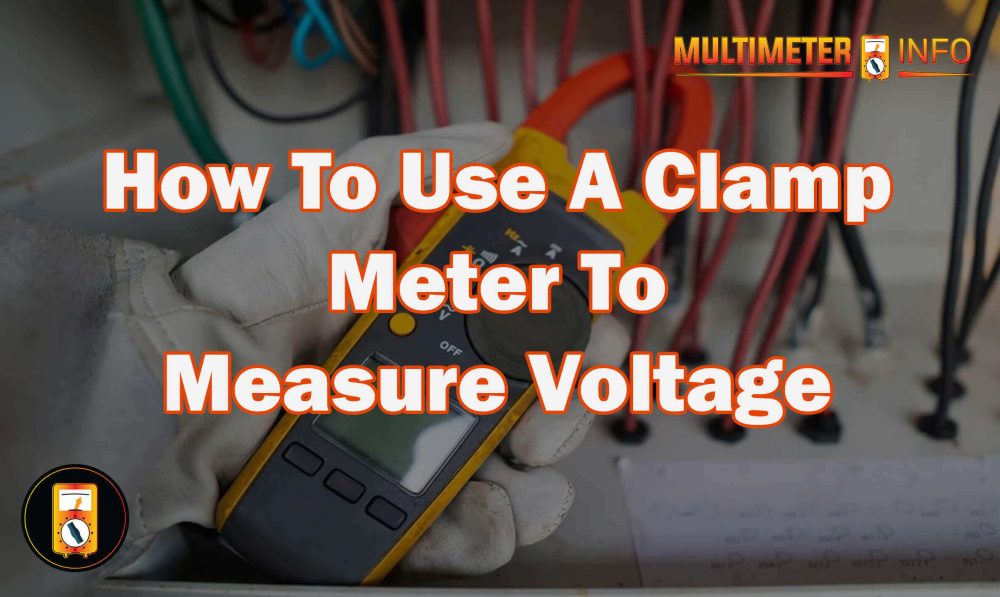Electrical wiring is essential to our homes and buildings, providing power to all our appliances and devices. However, water damage can harm the electrical system and pose a serious safety hazard. Water damage can be caused by various factors, such as flooding, leaks from plumbing systems, or even excess humidity in the air.
The question that arises is whether electrical wiring can withstand water damage or not. It is imperative to understand the potential risks associated with water-damaged electrical wiring and the steps that can be taken to prevent it from occurring to ensure safety and avoid costly repairs.
Causes of Water Damage to Electrical Wiring:
High temperatures, humidity, and moisture also contribute to water damage to electrical wiring. High voltage surges from lightning strikes can cause arcing on the wires themselves or at outlets and junction boxes in your home. Water penetration into the wall cavities, insulation, or other areas can cause short circuits and even fires due to corrosion of conductors and shorts in the wiring.
- Natural disasters, such as floods, hurricanes, and severe storms
- Leaking plumbing fixtures or appliance water lines
- Poorly installed electrical wiring or inadequate insulation
- Faulty connections due to corrosion or lose fittings
- Overflowing gutters and downspouts lead to pooling near the foundation of your home
- Cracked masonry allows water penetration in basements and crawl spaces
- Condensation from air conditioners or refrigeration units that is not properly drained away from equipment/wiring
- Faulty sump pumps resulting in flooding in your basement
- Contaminated water sources that contain chemicals, sewage, oil, and other debris
- Wind-driven rain infiltrating through windows, doors, or other openings in a structure
- Damage to electrical equipment due to ocean water and salt spray residue, which is particularly corrosive and conductive
Many of these situations can result in damage to electrical equipment, as well as create an unsafe environment if not properly addressed. To ensure the safety and integrity of your home’s electrical system, it is essential to have regular inspections and maintenance performed by qualified electricians knowledgeable about the risks associated with flooding and other sources of water damage. In addition to inspecting any existing wiring for signs of corrosion or deterioration, they should also be able to detect potential issues before they become serious problems that can lead to injury or property damage. Furthermore, they can advise on the best ways to protect electrical equipment in areas that may be exposed to contamination from floodwaters or other sources of water damage. With their help, you can ensure your electrical system remains safe and reliable for years.
Can Electrical Wiring Be Water Damaged?
Yes, electrical wiring can be water damaged. Water damage to electrical wiring is a major safety hazard that can lead to dangerous shocks, fires, and other hazardous conditions. Even brief exposure to water can corrode and weaken the metal in electrical wires, which may ultimately cause them to short out or fail altogether.
To prevent electric shock or fire hazards caused by water-damaged electrical wiring, regularly inspect any exposed areas of your home for signs of moisture or corrosion. Additionally, if you have existing water leaks in your home—such as a plumbing leak near an outlet—it is essential to inspect and repair these immediately to minimize the damage caused by water. It is best to have an electrician check the wiring to determine if any replacement or repairs are necessary.
By taking these simple steps, you can help keep your home and family safe by preventing electrical wiring from becoming water damaged. If you suspect any problems with your electrical wiring due to water damage, contact a professional electrician as soon as possible for assistance.
Signs of Water-Damaged Electrical Wiring
- Visible water stains or discoloration on walls, ceilings, or other surfaces near electrical outlets and fixtures: Water-damaged walls can show signs of bubbling, flaking paint, discolored patches, or warping due to moisture seeping through the drywall.
- Corroded outlets and switches: If an outlet has a rust-colored appearance or some other sign of corrosion, it may indicate that water damage has occurred.
- Burning smell coming from outlets: If you smell something burning near one of your electrical outlets, it could mean the wiring is damaged and must be repaired immediately.
- Flickering lights or circuit breaker problems: Flickering lights or circuit breakers that trip often can be signs of water-damaged wiring.
- Warm outlets: If an outlet feels unusually hot to the touch, it could indicate a short circuit caused by water damage.
- Discoloration on wires: If you notice discolored wires in your electrical system, it might indicate that they were corroded due to water exposure.
- Sparking outlets: Sparks coming from an outlet are never a good sign and could indicate water-damaged wiring.
- Buzzing sounds from outlets: A buzzing sound coming from an outlet usually means an excessive load on the wiring or a wiring issue causing a short circuit due to water damage.
- Flickering lights: Rather than being caused by a faulty bulb, flickering lights are often due to too much current running through the wiring due to water exposure.
- Circuit breaker trips frequently: When your circuit breaker trips more often than usual, it could indicate water-damaged electrical wiring overloaded and causing short circuits to occur. If you experience any of these warning signs, contact an electrician as soon as possible to prevent any further damage from occurring. With proper maintenance and timely repairs, you can ensure the safety of yourself and others in your home or business.
Frequently Asked Questions:
Yes, electrical wiring can be water damaged. Water damage to electrical wiring can cause short circuits and sparks, which could lead to a fire or other catastrophic consequences. It is essential to have any water-damaged wiring inspected and repaired by a licensed electrician as soon as possible.
Water-damaged wiring can cause various issues, such as power surges, shorts that can lead to fires and corrosion of the wires. Additionally, if the insulation on the wire has been compromised due to moisture seeping in, it may not provide adequate protection from electric shock.
Signs of water damage to electrical wiring may include discolored or swollen wires, scorch marks on outlets and switches, and a burning smell. If you see any of these signs, it is essential to have the wiring inspected immediately by a professional electrician.
If you discover water-damaged electrical wiring in your home, the best course of action is to call a professional electrician for an inspection as soon as possible. The electrician will determine if the wiring needs replacing and recommend any necessary repairs or upgrades. Additionally, you should unplug any electrical appliances connected to the wiring and avoid using any outlets in the area until a professional has inspected them.
The cost of repairing water-damaged electrical wiring can vary depending on the extent of damage and the type of repair required. A minor issue, such as corroded connections, might cost around $100-$150 for an inspection and repair. However, if the wiring requires extensive work or replacement, this could cost several hundred dollars or more.
Conclusion:
In conclusion, electrical wiring can indeed be water damaged. It is essential to take precautions and regularly check for any signs of damage or wear in electrical systems, particularly those exposed to water. Ignoring the warning signs could lead to dangerous situations such as fires, electrocution, and property damage. If you suspect that your electrical system has been compromised by water damage, seek professional help immediately. Remember, prevention is always better than cure when protecting your home and loved ones from potential hazards caused by water-damaged electrical systems. Stay safe!
Helpful Resources:
- https://twielectric.com/guidelines-handling-water-damaged-electrical-wire-cable/
- https://www.acelectricohio.com/what-happens-when-electrical-wiring-gets-wet/
- https://mrelectric.com/blog/can-electrical-wiring-be-water-damaged
- https://www.restorationsos.com/education/water-damage/education-enrichment/water-damage-and-your-home-electrical-system.asp





